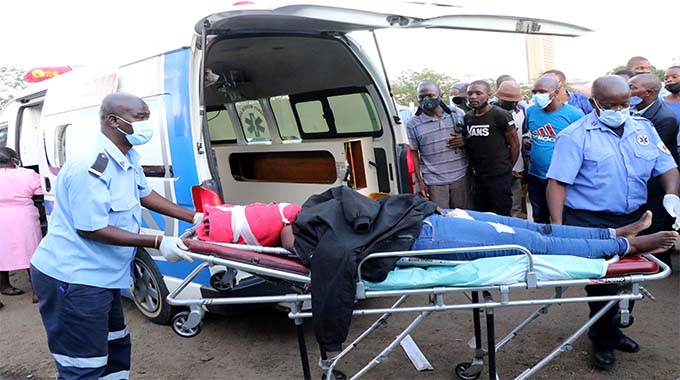Calls for community-based mental health services gain momentum

Yoliswa Dube-Moyo, Mat South Bureau Chief
Community-based approaches are needed to tackle mental health issues in rural areas as high rates of stigmatisation, discrimination and human rights violations of people with mental health disorders are rampant.
According to the United Nations State of the World’s Children report 2021, holistic and community based approaches to mental health services include expanded community-based social work, schools informed on trauma response, non-institutional approaches to mental health services and early interventions to support families.
Mental health is woefully underfunded and many governments do not allocate enough funds to mental health while allocations from international development assistance are meagre, reads the report.
A significant population in rural areas does not believe in terms such as depression and most people who commit suicide are said to have been bewitched.
Women, in particular, have no place or opportunity to mix and mingle to share ideas and many are busy with chores and have no time to relax.
Chief Masuku of Gwanda said it was important to have trained mental health personnel at rural health centres in an effort to make mental health services available in remote areas.“Advocacy should start at the level of the local leadership where mental health issues should be discussed as much as any other disease like Covid-19 or HIV/Aids.
We should work on tearing down the stigma associated with mental health issues so that our people can seek adequate help,” said Chief Masuku.
He said chiefs should constantly encourage their subjects to share their problems instead of resorting to violence and suicide.
“Opening up when one has challenges is helpful as a problem shared is half solved. If one’s mental illness has reached a stage where they need to be institutionalised, such a service should be available within their reach.
We not only need mental health institutions but health care providers who are trained to deal with mental health issues at rural health centres,” said Chief Masuku.
This, he said, would reduce pressure on referral mental health institutions such as Ingutsheni Central Hospital. Mental health advocate and founder of Abangane Platforms, a mental health support group, Mr Zibusiso Munandi said mental health is still a distant thought in rural areas.
“People don’t believe terms such as depression and most people who commit suicide are said to have been bewitched.
There is need to scale up mental health advocacy in rural areas but not in a way that eradicates or dilutes their culture because if we bring up programmes that dilute their culture, we’re perpetuating the status quo of viewing mental health as a borrowed entity from the West yet it’s not; it has always been there among us,” said Mr Munandi.
Scaling up advocacy strides, he said, has to include various stakeholders such as the Government, local chiefs and leaders.
“Most importantly, we have to structure mental health blue prints that are Afrocentric; re-imagining mental health in an Afrocentric and domesticated voice and practice. Abangane Platforms is planning on making strides for the year 2022,” said Mr Munandi.
He noted that lack of public understanding and knowledge about mental health, lack of social care services and health system responses in marginalised communities, lack of services and programs on mental health that address youths’ emotional and behavioural problems and lack of psychosocial support from community resources to victims and survivors of mental health disorders and their families are problems that need to be addressed.
Mr Munandi said there was a need to build community based mental health services including outreach services and community based rehabilitation centres.
“It will be important to set up life skills programs including but not confined to leadership and business courses, programs to counter bullying and substance abuse and integrate mental health disorder programs into disease-specific programs that involve and educate on diseases such as HIV/Aids along with other sexual reproductive diseases.
Intervention for youths exhibiting emotional and behavioural problems and enhancement of self-help groups; social support networks and community participation for people with mental health disorders is also key.” – @Yolisswa









Comments